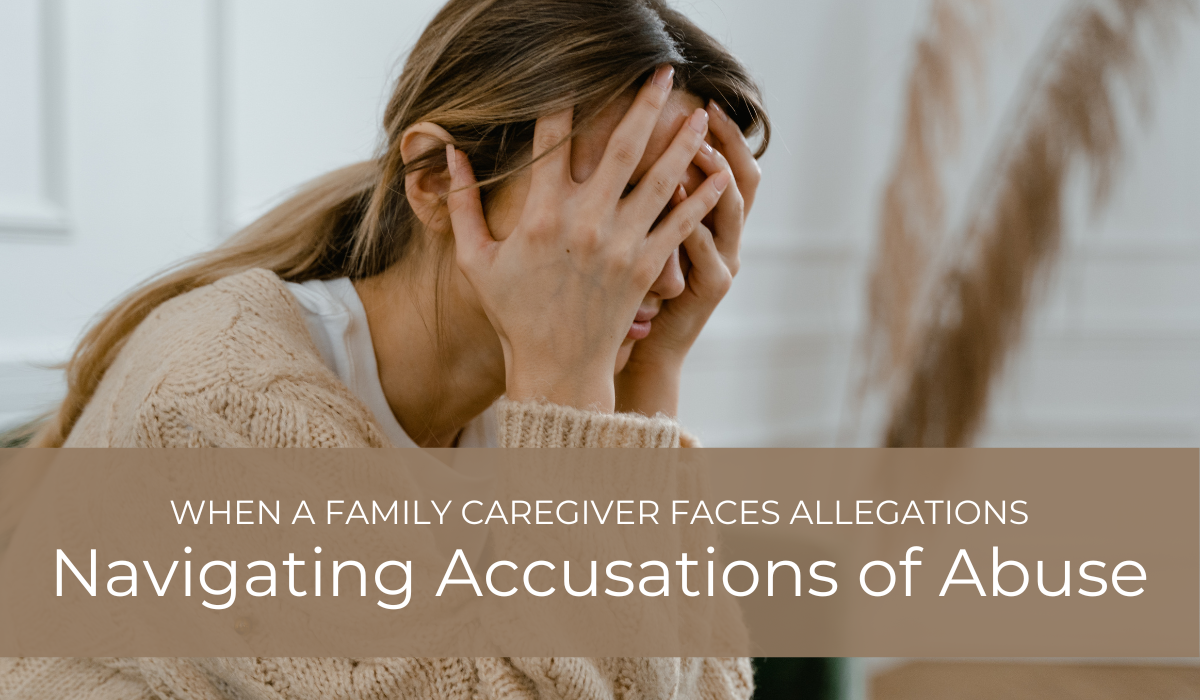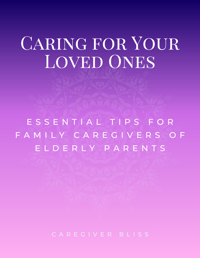Navigating Accusations of Abuse: When a Family Caregiver Faces Allegations

Family caregivers play a crucial role in providing care and support to their loved ones who may be elderly, disabled, or facing health challenges. Their dedication and selflessness are often commendable, but sometimes, situations arise where a family caregiver is accused of abuse.
This is a serious and sensitive issue that requires careful consideration and understanding. In this article, we'll explore the importance of recognizing abuse, the consequences of false accusations, and ways to address this difficult situation.
Recognizing Abuse
Abuse can take many forms, including physical, emotional, financial, and neglect. It's essential to understand what constitutes abuse to differentiate it from a caregiver's well-intentioned actions.
- Physical abuse involves any intentional harm, such as hitting, slapping, or restraining.
- Emotional abuse includes verbal insults, humiliation, or isolation.
- Financial abuse is the unauthorized use of a loved one's money or property for personal gain.
- Neglect involves failing to provide adequate care, food, medication, or attention.
Accusations and Consequences
Accusations of abuse can be distressing for both the caregiver and the person receiving care. Here are some potential consequences:
- Legal repercussions: False accusations can lead to legal trouble, affecting the caregiver's reputation and future.
- Emotional distress: Accusations can be emotionally taxing for both parties, causing anxiety, guilt, and strained family relationships.
- Increased isolation: Friends and family may distance themselves from the accused caregiver, making the situation even more challenging.
- Impact on care: The person receiving care may suffer if the caregiver is wrongly removed from their role.
Dealing with Accusations
If you or someone you know is accused of abuse, it's crucial to approach the situation with care and sensitivity. Here are steps to consider:
- Stay calm: It's natural to feel defensive or upset, but try to remain calm and composed.
- Communicate openly: Discuss the accusations with the accuser and seek to understand their concerns.
- Seek legal advice: Consult an attorney experienced in elder or caregiver law to protect your rights and explore your options.
- Gather evidence: Document interactions and collect any evidence that may refute the accusations.
- Seek support: Reach out to friends, family, or support groups to help you cope with the emotional toll of the situation.
- Investigate the claims: Authorities may investigate the accusations to determine their validity.
- Professional assessments: A medical or mental health professional can assess the health and well-being of the person receiving care and provide a valuable perspective.
Preventing Abuse
To prevent abuse and accusations of abuse, consider these proactive steps:
- Educate yourself: Learn about proper caregiving techniques and the signs of abuse to avoid unintentional harm.
- Seek respite care: Take regular breaks to prevent caregiver burnout and ensure the well-being of both you and your loved one.
- Maintain open communication: Talk openly with the person receiving care about their needs, preferences, and concerns.
- Keep financial records: Maintain transparent financial records to avoid any suspicion of financial abuse.
Conclusion
Accusations of abuse against a family caregiver are a difficult and emotional challenge for everyone involved. It's essential to address these accusations with empathy, seek legal advice if necessary, and work towards resolving the situation while prioritizing the well-being of the person receiving care. Ultimately, understanding abuse, preventing it, and handling accusations responsibly can help ensure a safe and supportive caregiving environment for all.
We value your thoughts and experiences on this sensitive topic. Have you ever encountered a situation where a family caregiver was accused of abuse, or do you have advice on how to handle such accusations? Share your insights and stories in the comments below to contribute to a supportive community discussion. Your perspective may provide comfort and guidance to others facing similar challenges.
Free Guide:
Caring For Your Loved Ones
 Attention family caregivers! Are you struggling to provide the best care for your aging parents? Don't worry, we've got you covered.
Attention family caregivers! Are you struggling to provide the best care for your aging parents? Don't worry, we've got you covered.
Download our free guide, Caring for Your Loved Ones: 10 Essential Tips for Family Caregivers of Elderly Parents, and unlock the secrets to becoming an exceptional caregiver.
From adapting the home environment to promoting independence, this invaluable resource will transform your caregiving experience into a more rewarding journey. Don't wait—give your loved ones the care they deserve, and download your free copy today!
